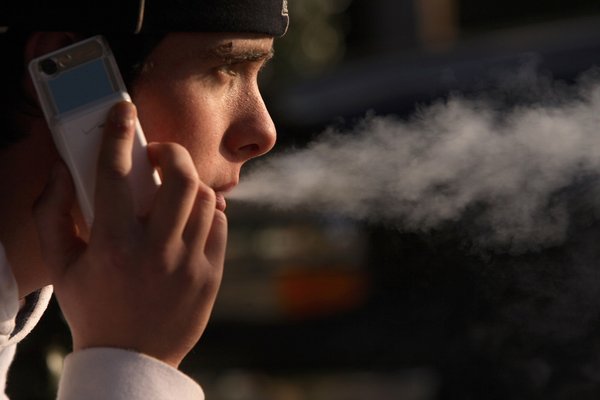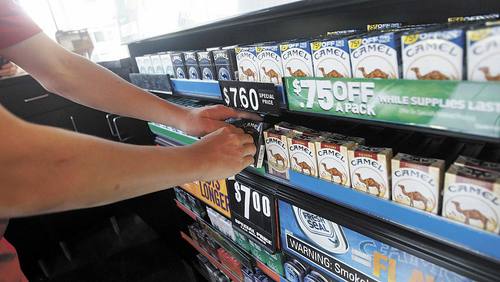Hike in city cigarette tax will cut smoking, save lives, health chief says
BY FRAN SPIELMAN, City Hall Reporter, Chicago Sun-Times
Mayor Rahm Emanuel’s controversial plan to raise the city’s cigarette tax by 75-cents-a-pack will persuade 5,500 adults to quit smoking and 6,400 kids not to take their first puff, a top mayoral aide claimed Tuesday.
Health Commissioner Dr. Bechara Choucair went on the offensive for the most controversial element of Emanuel’s 2014 budget, armed with what he called an “independent analysis” conducted by the Campaign for Tobacco-Free Kids.
It concluded that the 75-cents-a-pack tax that would leave Chicago with the nation’s highest combined state and local tax rate would persuade 6,400 kids “not to light up their first cigarette” and 5,500 adults to quit smoking.
The study further concluded that the tax would “save 3,500 lives long-term from premature death related to tobacco” and save the city $235 million in long-term health care costs.
Choucair and the Campaign for Tobacco-Free Kids are hardly unbiased observers.
But the commissioner’s impassioned defense of the $10 million-a-year sin tax that Emanuel wants to use to expand health care for kids was aimed at persuading aldermen to think twice before attempting to snuff out the tax.
“The cigarette tax is a proven public policy approach to save lives, to save health care dollars and add revenue,” Choucair said Tuesday during testimony at City Council budget hearings.
A veteran family physician, Choucair added, “I saw a lot of patients here in Chicago. I also saw patients in Houston. I saw patients in Rockford, Lebanon, Iraq Guatemala and Mexico. And the No. 1 reason as to why people are dying in all of these places is related to smoking. So we have the responsibility to act.”
South Side Ald. Toni Foulkes (15th) said she’s concerned that the added 75-cents-a-pack will drive up the use of unfiltered, roll-up cigarettes.
“A lot of seniors—mostly male—[who] can’t afford cigarettes and wouldn’t go out and purchase loose cigarettes go for the roll-ups,” Foulkes said.
“They’re already at high-risk. They already have pre-existing issues. What are some of the health risks because I think more people, now younger, would probably go to the roll-ups because it’s much cheaper to buy the tobacco.”
Choucair noted that people who live in low-income communities are four times more likely to quit because of higher taxes.
He added, “When it comes to tobacco—whether it’s with filter or without filter—poison is poison. … We really need to be aggressively addressing this. Big Tobacco tries to give us the impression that, if we have a filter, that it’s safer. The reality is, tobacco is tobacco and people will die from smoking tobacco.”
http://www.suntimes.com/news/metro/23553833-418/hike-in-city-cigarette-tax-will-cut-smoking-save-lives-health-chief-says.html
Downtown Ald. Brendan Reilly (42nd), a smoker, said expanding the eye-care program for kids is a “noble cause” he wholeheartedly supports.
But Reilly said he remains concerned about the “potential unintended negative consequences” for Chicago retailers.
“I wouldn’t encourage anyone to pick up smoking. It’s a stupid thing to do. I’m just concerned this could pose a potential boon for suburban retailers who are literally across the street from the city of Chicago and put some of our, especially gas station owners, at a competitive disadvantage,” Reilly said.
Reilly noted that politicians at all levels love to link an unpopular tax to a feel-good program to make the bitter pill easier to swallow.
But he noted that the eye-care program is likely to “grow over time” while the cigarette tax has a history of going in the opposite direction.
“The higher the tax, the expectation is fewer people will purchase cigarettes. My concern is that we may not have a stable revenue source to support a very good program that helps lots and lots of kids,” the alderman said.
Choucair replied, “Keep in mind that we’re investing $2 million for this vision program. Expected revenue from the cigarette tax is around $10 million. So, we’ll keep an eye definitely on the expected revenue from the cigarette tax.”
Emanuel’s plan to raise the city’s cigarette tax by 75-cents-a-pack remains a key sticking point in a relatively non-controversial budget.
Critics contend it will encourage people to stand on street corners hawking loose cigarettes, exacerbating a black market that’s already worse than the ones for marijuana, cocaine and heroin.
“The human costs are devastating. It creates an underground economy,” Ald. Roderick Sawyer (6th) said when City Council budget hearings opened last week.
Ald. Leslie Hairston (5th) warned that the nation’s highest combined state and local tax would “disproportionately impact communities of color” by “creating a very large black market” for smokes.
“The loose sale of single cigarettes. The sale of cigarettes without tax stamps, which leads to increased loitering. Which means people who might be involved in illegal activity are visible and on the street. If I’m in a rival gang, then I’m going to come by and then we have another shooting,” she said.
Emanuel has a history of tinkering at the margins of his budgets to appease aldermen. But if the $10 million cigarette tax hike was thrown in as a bargaining chip to be dealt away, the mayor has not yet tipped his hand.
“Two years ago, the state increased the cigarette tax by $1. Last year, the county increased it by $1. We’ve increased it 75 cents and we’re putting it towards improving the health care of our children. That’s the right type of investment. And I think it’s the right step, because it also reduces health care costs for those associated with smoking,” the mayor said last week.



